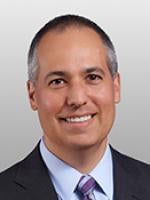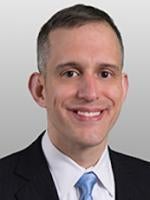On February 9, 2018, the FCC released a Public Notice seeking comment on a request by Sensible Medical Innovations Ltd. (Sensible) for a waiver of certain FCC rules to permit its marketing and operation of a medical imaging and diagnostic device that provides accurate lung-fluid measurements in a non-invasive way for congestive heart failure patients.
The device works by attaching two sensors to the body, one on the chest and one on the back, positioned so that the patient’s lung is between the two sensors. Each sensor consists of an antenna for transmitting and receiving electromagnetic waves that are transferred through the pulmonary tissue. The dielectric properties of the lung alter the transmitted electromagnetic waves, and these changes are measured by the system and used to calculate fluid concentration.
Because the device operates over a certain frequency range, it must comply with certain FCC regulations. Although Sensible claims that the device generally complies with most applicable FCC regulations governing this frequency range, it acknowledges that it does not comply with two: (1) a requirement that emissions above 960 MHz be made with root square mean average detector over 1 MHz resolution bandwidth, with an average time of one millisecond or less; and (2) a requirement that ultra wide-band imaging devices coordinate the their deployment with the NTIA, which is part of the Department of Commerce. Sensible is seeking a waiver of the first rule because its system could comply with the average emission limit only if the averaging time interval were increased to 50 milliseconds, and it is seeking a waiver of the second rule on the theory that coordination with NTIA is impractical for a body-worn device that will operate intermittently indoors.
The FCC is authorized to waive its rules for good cause shown, but in the absence of an emergency it routinely seeks public comment on waiver requests before acting. Still, it would not be unusual for the FCC to grant Sensible’s waiver requests if others do not object and if the agency does not believe that doing so would cause harm or interference to other devices or services that rely on spectrum.
This development should be of interest to medical device companies, as they should be aware of how the FCC is approaching such matters. Covington’s Communications & Media Practice Group has significant experience advising a range of companies on these and similar FCC issues.





 />i
/>i

